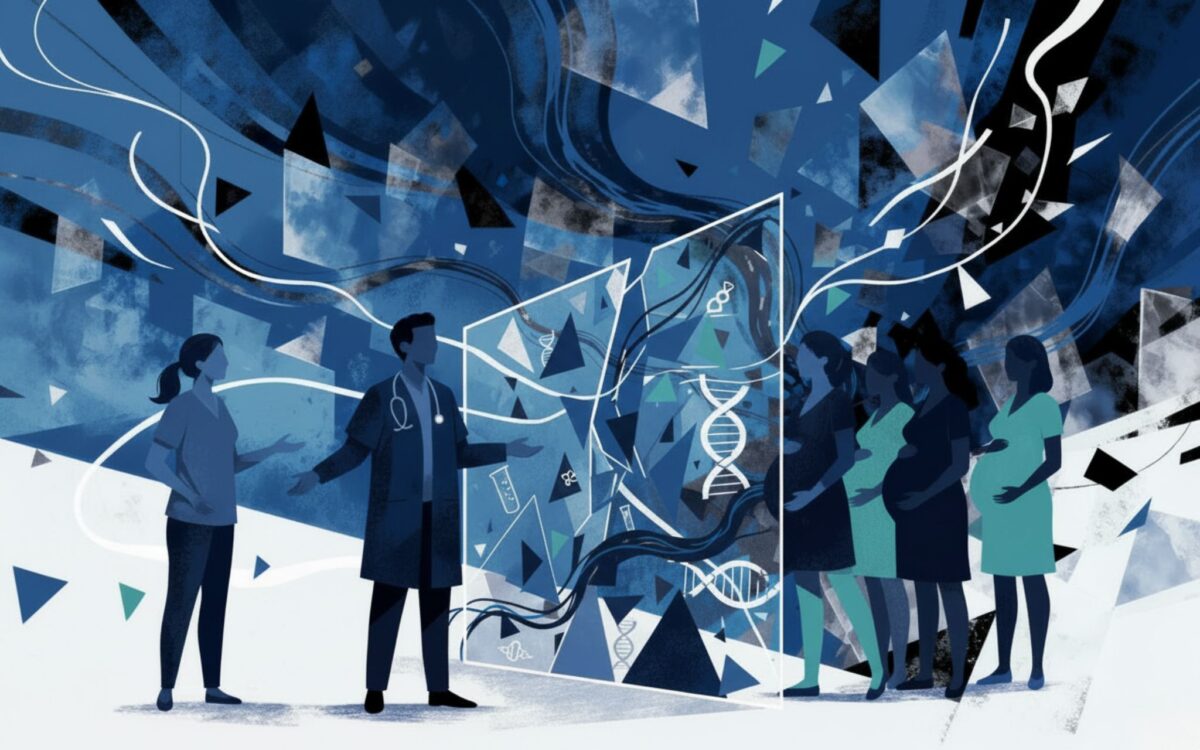 #News
#News
Psychiatric genetics: Studies ignore Latin America and widen inequalities
Lack of ethnic diversity in research may deprive mixed-race populations of more accurate diagnoses and personalized treatments for psychiatric disorders
 Lack of ethnic diversity in DNA studies may hinder the progress of precision psychiatry in mixed-race populations | Image: Unsplash
Lack of ethnic diversity in DNA studies may hinder the progress of precision psychiatry in mixed-race populations | Image: Unsplash
A study published in the journal Nature Genetics revealed that 85% of participants in psychiatric genetics research are of European ancestry. The low representation of mixed-race populations, common in Latin America, could impede access to new diagnostic and treatment tools in the field of precision psychiatry.
“This imbalance in the sample could limit our understanding of human psychiatric genetics and create new health inequalities,” warns Diego Rovaris, a geneticist at the University of São Paulo (USP) and lead author of the study.
Speaking to Science Arena, Rovaris explains that the genetic complexity of Latin American populations and the lack of funding for research in the region are both barriers to inclusion. The Latin American genome reflects the blending of diverse ancestries, requiring specific approaches and greater scientific investment.
“It is essential to increase the diversity of samples in psychiatric studies,” says geneticist Maria Cátira Bortolini of the Federal University of Rio Grande do Sul (UFRGS), who did not participate in the study. “This paper should serve as a warning to the authorities and funding agencies.”
The genetic basis of psychiatric disorders
To understand the genetic foundations of psychiatric disorders, scientists rely on genome-wide association studies (GWAS), which are used to compare the genomes of individuals with and without a given condition, identifying variants associated with disease risk.
A recent study on depression analyzed 5 million participants, including mixed-race individuals, and identified dozens of relevant genetic variants. These risk variants are mutations that have only a small impact in isolation, but collectively can influence the onset of disorders.
“The affected genes interact with each other, and their impact depends on the individual’s genetic makeup,” explains Bortolini of UFRGS. “A variant may pose a risk in a European population, but not among Latin Americans.”
Based on identified variants, researchers investigate the associated biological pathways, such as the production of dopamine, a neurotransmitter related to attention and impulse control.
“In a GWAS on ADHD, we identified 76 risk genes that act mainly in neurons communicating through dopamine in brain regions important for attention,” says Rovaris
More effective therapies and diversification of samples
One tool under development is the polygenic risk score (PRS), which estimates a person’s genetic predisposition to a disorder by analyzing variants in their DNA. “People who are born with many variants associated with a disorder tend to have a higher risk of developing it throughout life, as well as a worse prognosis,” notes Rovaris.
Use of the PRS in genetic counseling can help to improve prevention and to guide treatment choices. However, it is essential that the score be calibrated with data from the local population.
“A PRS developed in Europe or the US is of little use to the Brazilian population,” Rovaris points out.
To increase diversity in research, the Latin American Genomics Consortium was created, bringing together more than 100 geneticists from various countries in the region. The initiative seeks to facilitate the formation of research groups, raise funds, and train researchers.
“This article serves as a guide for diversifying research samples,” says Bortolini.
The consortium is also working on expanding regional databases, recruiting more participants, and increasing the representation of Latin American populations in psychiatric science.
“Our goal is to promote scientific collaboration in Latin America, expand databases with representative samples from the region, and make precision psychiatry a reality for everyone, regardless of ethnic group or socioeconomic status,” concludes Rovaris.
*
This article may be republished online under the CC-BY-NC-ND Creative Commons license.
The text must not be edited and the author(s) and source (Science Arena) must be credited.


